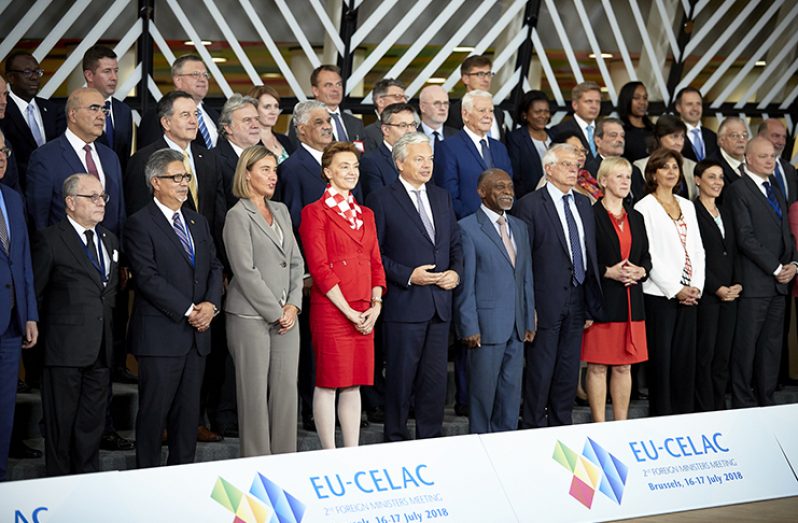– Greenidge tells CELAC-EU forum
MINISTER of Foreign Affairs, Carl Greenidge, told a forum in Brussels Tuesday that states have a collective responsibility to protect the planet.
He was addressing the just-concluded Community of Latin American and Caribbean States (CELAC) – European Union (EU) Foreign Ministers Meeting. “The shared benefits from the actions of individual countries are often not matched by shared responsibility. In fact, too often [it is] the owners of the resources who largely or solely bear the opportunity cost of protecting the environment,” Greenidge was quoted in a release issued by his ministry.
The Guyanese foreign affairs minister noted that Guyana was playing its part. “Countries like my own, enjoying sovereignty over territory with heavy forest cover, an extensive sea coast and an abundance of natural life and biodiversity in both locations, ought to ensure that these resources are properly protected and are used responsibly,” Minister Greenidge said.
This, he explained, could limit the benefits some countries could otherwise enjoy from utilising their natural resources. The meeting examined the implementation of the 2030 Sustainable Development Agenda, which includes 17 Sustainable Development Goals (SDGs) to end poverty, fight inequality and injustice, and tackle climate change by 2030. Guyana’s own Green State Development Strategy is an expression of its commitment to implement the 2030 Agenda.
Minister Greenidge also spoke of finance mechanisms that failed to achieve intended targets such as the Monterrey Consensus, noting that “progress that we have made so far on the Addis Ababa Action Agenda on financing for development does not leave us with much reason to hope that the promises made therein will be fulfilled, either.”
The Monterrey Consensus is a global agreement between developed and developing countries, in which both recognised their responsibilities in key areas such as trade, aid, debt relief and institution-building. The Addis Ababa Action Agenda is a follow-up development financing arrangement. While the aforementioned mechanisms failed, the minister shared that Guyana was pleased to see that several European countries met or surpassed the 0.7 percent Gross National Income (GNI) target for financing development.
“We hope that other OECD countries can add to this laudable achievement, especially since many of our countries still need to build capacity if they are to implement sustainable activities,” he urged. Established in 2011, the regional forum CELAC provides a platform for 33 countries within Latin America and the Caribbean to exchange dialogue and collaborate on political agreements. The CELAC-EU ministerial meeting was held under the theme, “Building Bridges and Strengthening our Partnership to face Global Challenges.”













